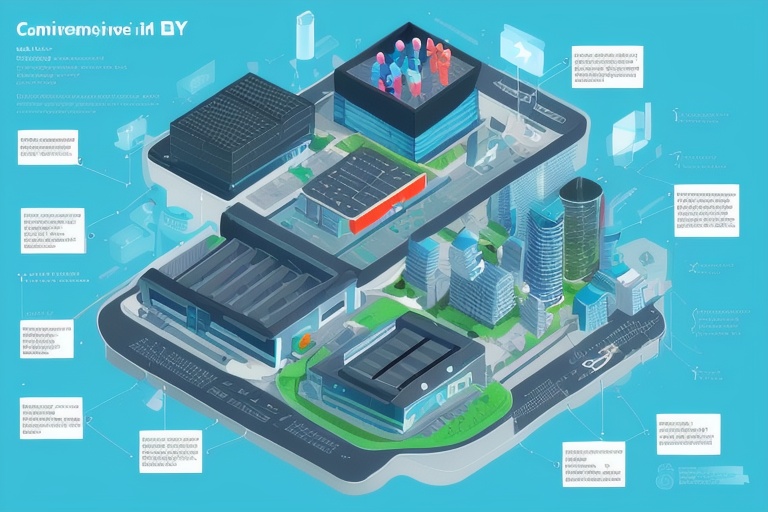Artificial intelligence (AI) has been at the forefront of technological advances in recent years, transforming the way we approach challenges and conduct business across various industries. In healthcare, for example, AI is making significant strides by enabling medical professionals to better understand and treat illnesses through personalized care. By analyzing a myriad of patient data, including medical records, lab results, imaging, and genetic information, AI algorithms furnish healthcare providers with vital insights and recommendations that aid in accurate diagnostics and outcome improvements.
Artificial intelligence (AI) has been at the forefront of technological advances in recent years, transforming the way we approach challenges and conduct business across various industries. In healthcare, for example, AI is making significant strides by enabling medical professionals to better understand and treat illnesses through personalized care. By analyzing a myriad of patient data, including medical records, lab results, imaging, and genetic information, AI algorithms furnish healthcare providers with vital insights and recommendations that aid in accurate diagnostics and outcome improvements.
AI's Role in Healthcare
Within the medical field, AI has proven to be instrumental in refining patient outcomes and streamlining healthcare operations. Sophisticated AI systems have the ability to swiftly process medical imaging like X-rays and MRIs, identifying patterns and flagging anomalies that could signify serious health conditions. This quick identification through AI can lead to earlier and more effective interventions.
Moreover, AI's contribution to drug discovery and development cannot be overstated. By analyzing enormous data sets, AI helps in pinpointing promising drug candidates, vastly accelerating the research timeline that is typically lengthy and resource-intensive. Beyond the lab, AI's influence extends to direct patient interactions, with AI-powered chatbots and virtual assistants offering immediate support and guidance, thereby enhancing access to healthcare information and yielding tailored health advice.
Predictive Capabilities and Surgical Assistance
The predictive capabilities of AI are groundbreaking. By anticipating disease outbreaks and optimizing patient flow within hospitals, AI applications add a layer of preemptive strategy to healthcare management. Additionally, AI is increasingly finding a place in operating rooms by assisting in surgical procedures, providing surgeons with real-time data and augmenting their precision.
AI in Patient Experience and Hospital Management
The patient experience is also being refined through AI. From appointment scheduling to follow-up care, AI-driven systems are fostering a more seamless interaction between patients and healthcare services. In terms of hospital management, AI aids in resource allocation, ensuring that staffing and equipment are optimally utilized, thus boosting the efficiency of healthcare delivery systems.
Beyond Healthcare: Finance and More
The benefits of AI are not restricted to healthcare alone. The financial industry, too, reaps the rewards of AI technology. Machine learning algorithms are employed to scrutinize financial transactions and historical data, spotting patterns that enhance fraud detection and enable smarter investment strategies. Personalized financial advice is now dispensed through AI chatbots, offering customers a more interactive and customized banking experience. Additionally, the implementation of AI in handling mundane tasks such as data entry leads to augmented efficiency and a significant reduction in human error.
AI's Versatility Across Sectors
Artificial intelligence has cemented itself as a transformative element across multiple sectors including e-commerce, transportation, finance, and healthcare. Its ability to process information rapidly and learn from data enables AI applications to provide innovative solutions and drive continued progress. Automation, precise data analysis, and customer engagement are just the beginning of AI's vast potential.
Embracing AI for Competitive Advantage
Embracing AI technology is fundamental for businesses aiming to maintain a competitive edge. Staying up-to-date with AI trends and incorporating AI-driven strategies can position companies and individuals to harness the full spectrum of advantages that AI offers. As AI technology evolves, its applications will expand, revealing new opportunities and fostering further innovation. It's crucial for companies to adapt proactively, integrating AI into their operations to secure their place in a future shaped by artificial intelligence.
In summary, AI's far-reaching impact is redefining industries by enhancing diagnostics, personalizing patient care, modernizing financial services, and driving efficiency across various domains. Harnessing AI's capabilities promises to yield more remarkable achievements as we delve deeper into an era characterized by technological empowerment. The intelligently automated, data-informed, and patient-centric environments created by AI not only enhance current methodologies but pave the path for future breakthroughs that could profoundly shape the trajectory of human progress.
Information for this article was gathered from the following source.




